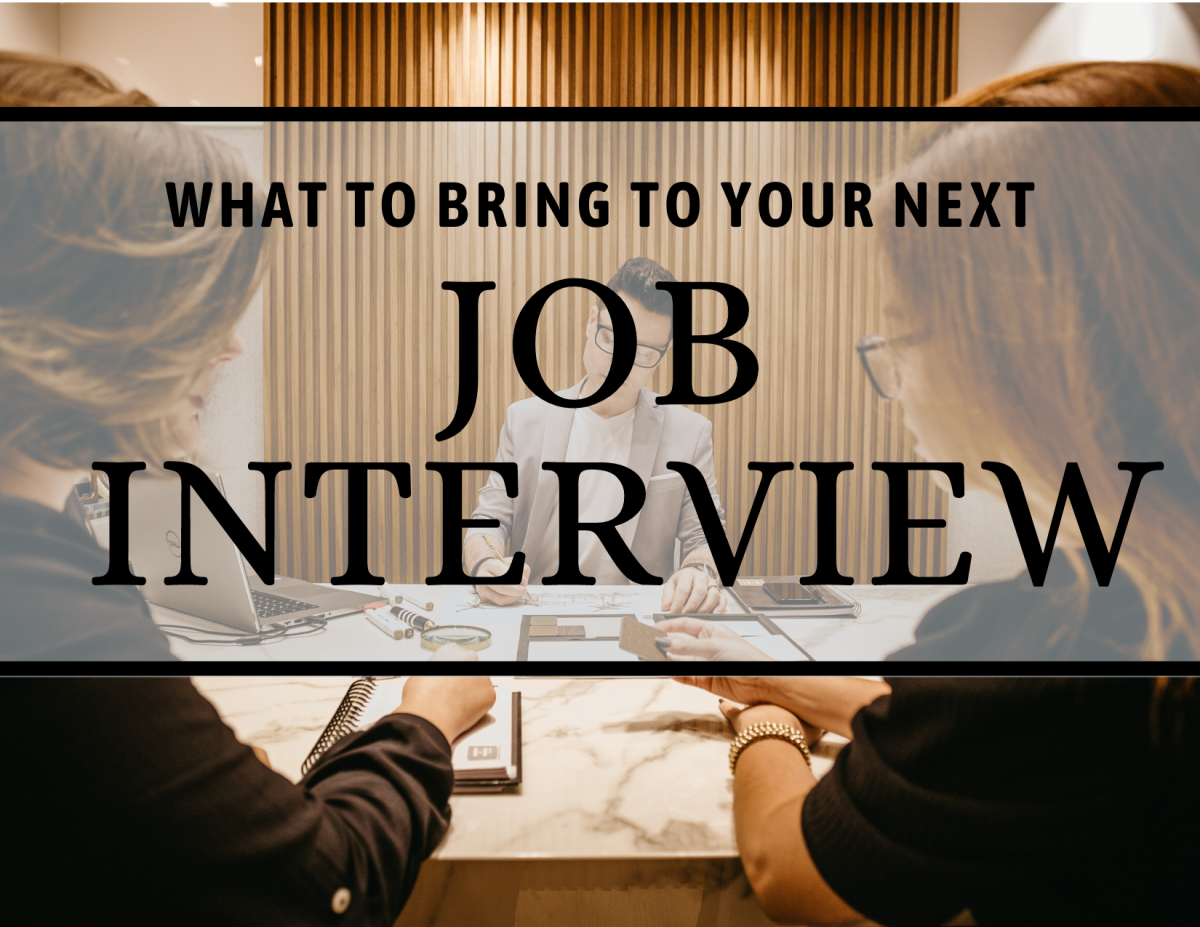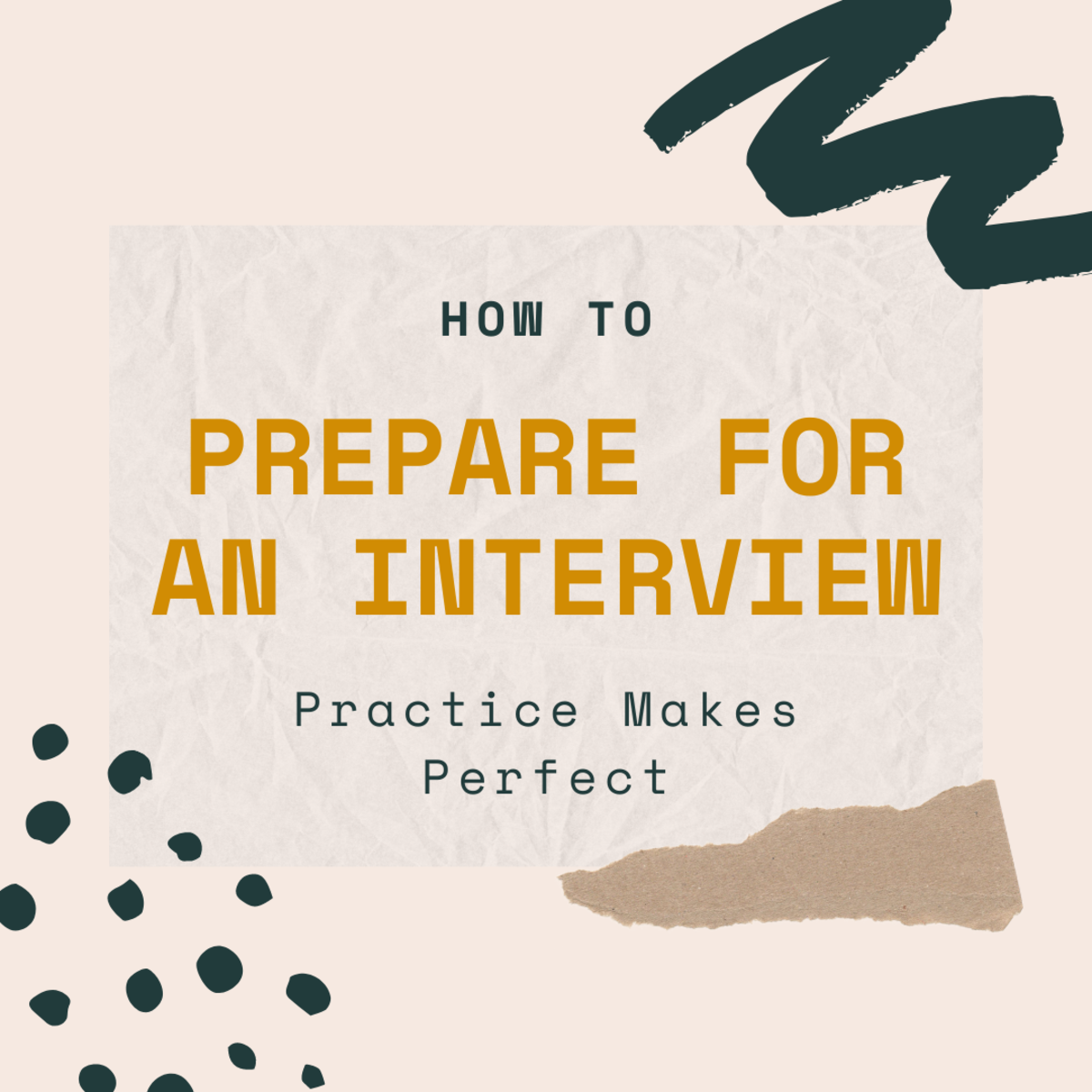- HubPages»
- Business and Employment»
- Employment & Jobs»
- Interviewing for a Job
How to prepare very well for an interview.

If you posses intelligence and imagination, it is inevitable that you will approach your interview with you prospective employer with a degree of apprehension. Much will depend on the out come. If the job for which you have applied is the one you particularly want, you may well be suffering acute anxiety as the fatal hour approaches. You will wonder what questions you may be asked and whether you will be able to find the right answers.
You may have heard that some interviewers have a stock of ‘truck’ questions and you will wonder what these are and whether you will recognize them when they come. Above all, you may be fearful that you will not match up to the interviewer’s requirement and that your golden opportunity will be lost.
Although your hypertension is unlikely to be abated, some of the unnecessary worries which attaches to an employment interviews can be removed if you give some quiet thought, in advance, to what the interviewer is seeking.Until you have the man who will interview you, it is obvious that you cannot be sure of the manner he will adopt or what your own reactions are likely to be. You can, however, put yourself, in imagination, into the position of the interviewer and give some thought to the kind of questions he is likely to ask. This pre-interview mental preparation is something which you will have to learn to do before all important interviews in your working life.
Think about what you will wear to the interview, if the job you seek involves manual labour, wear appropriate neat, clean clothing. Neat dress and grooming tell the prospective employer that you take pride in yourself and are thus more likely to take pride in your work. If you are hoping to work in an office, wear suitable business attire when you leave choose you cloths long before you are due to attend your interview so that you don’t feel rushed and unnecessarily your level of stress prior to the interview.
Experts say and recommend arriving for your interviews about 15 minutes early. Of course, arriving early is not wise. But arriving late could be disastrous. The first three seconds of your interview are crucial. During that brief time, the interviewer makes assements about your appearance and your bearing that deeply influence his or her own opinion of you. If you are late, you will make an overwhelming negative impression. Remember, there are no second chances to rectify first impression.
The company and its products are usually important, one of the first thing to do is to find out all about the firm and its products. Is it a private of public company? Is it old established or of recent origin? Is it part of a large group? If so, what are the other companies in the group? What does the company make? Where are its factories? Does it sell its products under brand names? If so, what are they? Who are likely its competitors?
You may like to research the company you hope to work for, the more you know about the company, the better the impression you will make during the interview, your research will also help you to determine whether the company really have the kind of work you want or is it one you want to work for.
What do you know about our company and our products? Is always a stock question of the interviewers. What the interviewer is seeking is not the accuracy of knowledge, all the necessary information on these subjects will be provided in the event of your getting a job, the point of the question is to discover whether your have made the effort to find out.
Bear in mind that the interviewer will be trying to find out as much about you as he can in a very limited period of time. He will be looking for some potentials in you which, with training and experience, will enable you to acquire the necessary aptitude and attitude that the job requires, he will try to build a picture of you and of your life so far. His basic questions will, therefore, relate to your education, where you grew up, what sort of job you have done before and what your interests are. He will only establish this picture from what you say and the way in which you say it.
Shop in amazon.
There is often uncertainty in the minds of young applicants as to how far they should ‘push’ themselves during an interview, they are, naturally, anxious to show the best side of themselves and yet they are often inhibited by fear of saying the wrong thing or saying too much. They are afraid of catch questions, sometimes they react as though they suspect that every question, however innocently ascked, is designed to trap them into denouncing themselves.
In general, your prospective employer is looking for three basic qualities (a) intelligence (b) personality and (c) what, for want of better word, I would call honesty, he can only form an opinion of you on those three counts by getting you to express your self.
The art of self projection is necessary. From the moment you step into the interviewers room, you have to project yourself, by this I do not mean that you should grip the interviewer’s hand like a vice and become highly voluble. You gust have to give your potential employer the impression that you are the kind of person who will measure up to his requirements, I don’t mean that you should act a part. If the interviewer has any experience op people, he will soon detect that it is an act, at all times and in all circumstances, you must remain yourself.
The interviewer may ask you something of your background. Where you were born? What schools did you attend? What education attainments have you? What was your first job? Tell him and tell him truthfully. State the facts, adding any explanations which you consider to be relevant. Remember one thing, it is your life which you are discussing. Do not apologize for it. Do not imply that you are apologizing for it. Show that you have a reasonably good opinion of yourself. If you did not graduate from school with a good grade, you don’t have to spell the fact out for him. The fact that you were no great scholar will not prevent you from being a good worker, do not despair about your poor performances, and do not let the interviewer feel that you despair about it. Let him realize that past failures have not undermined your belief in your future success.
Remember too, that the interviewer is not your enemy, after all he likely had to apply for his job, so he knows how you feel, in fact. He may be nervous, since may have received very little or no training on how to conduct an interview, in addition, if the interviewer is the employer, he may have much to lose if he chooses the wrong person for the job.
To start of well in an interview, smile and give the interviewer a hand shake if that is the customary greeting. During the interview, concentrate on what the employer needs from you and what you have to offer. Regarding things to avoid, don’t fidget or slough; good posture conveys confidence. Don’t be too informal or overly talkative, and definitely do not have profanity. Also, avoid being negative about your formal employers workmates. If you are negative about them, the interviewer will likely feel you are negative about this job too.
Regarding things to say during the interview, experts recommend the following; maintain eye contact with the interviewer, use natural gesture when you speak, and articulate clearly. Be concise and honest when answering questions about the company and the prospective job.
Do not be in too much of a hurry to agree with every thing the interviewer says, some times an employer will deliberately make some provocative remark merely to draw the applicant out and see what his reaction will be. This is where the quality of honesty comes in. you are entitled to a contrary opinion. I am not suggesting that you should argue with the interviewer over a trivial point. Nor should you contradict him on a matter of facts unless, it is vital and concerns the proposed appointment. But if he has chosen to turn the conversation to a discussion of some general issue, it is likely that he is genuinely seeking your views. That is a matter of judgment. If you have a different view point, by all means, express it. Let him know that you are not just an eyes-man. No reasonably minded individual resents the expressions of an opposing view point, if he has invited it, provided that it is expressed ion polite terms and devoid of rancour and prejudice.
The interviewer is likely to ask you what your aims are in life. Try to be specific. Tell him that you want a job which will provide you with a good income and a degree of security, a job which carries with it the opportunity, in time, for promotion in some form of managerial responsibility, above all, you want a job that will be demanding and, therefore always interesting.
You may feel that this sound a little trite. There is certainly nothing original in the expression of such ambitions. Your justification for expressing them is that in all possibility, they will be true. If you feel that the interviewer has received them with a degree of cynicism, you may relax with the thought that you have at least shown him that you know the right thing to say. At the end of the interview, if you are successful and still want the job, ask for it. Doing so will show your enthusiasm.




